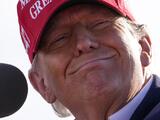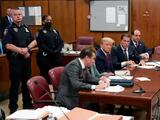'America First' is now a case of 'America Plays Catch-up' as nations prepare to gather at U.N.

Next week global diplomacy and New York City’s infamous traffic gridlock will once again collide at the opening of the 74th United Nations (U.N.) General Assembly.
The annual September gathering brings world leaders together for a week of debate, which in practice is simply a series of speeches. Still, it remains the globe’s ultimate geopolitical summit since the founding of the U.N. in 1946. Some leaders use this opportunity to make sales pitches for their countries and policies. Others, like Cuba and Venezuela, routinely use it to blame all their woes on the United States.
World powers such as China and the United States tend to lay out their visions for international leadership. Still others focus on international collaboration in addressing war and peace or poverty and development. Democrats and dictators alike speak without censure. Then they go home, leaving their diplomats to tinker with the details of resolutions and the U.N.’s myriad humanitarian, peacekeeping, human rights and other highly technical programs.
The issues change but the underlying power relationships at the U.N. have remained remarkably consistent for over 70 years. The United States both, as host nation and the world’s mightiest economic and military power, was the undisputed big dog at the U.N.. The rest of the world, both supporters and detractors, jockeyed for influence. Ours was a matter of realpolitik fact.
That long-term status quo has begun to change under President Trump, according to a number of observers, including State Department senior officials, as recently reported in Foreign Policy. It would appear that 'America First' has resulted in 'America Plays Catch-up,' at least at the U.N.. The reasons for this worrisome scenario are the administration’s philosophical contempt for the institution and the President’s relentless personalization of American foreign policy.
Recently fired National Security Advisor John Bolton, a previous U.N. ambassador hates the body, once suggesting “if the U.N. lost its top ten floors it wouldn’t make a difference.” When asked last year about the plethora of senior diplomatic vacancies, Trump predictably went self-referential: “They don’t matter. I’m the only one who matters.” He certainly does matter, but he has proven repeatedly he understands little about global geopolitics.
Following the surprise resignation of Nikki Haley last year, the leadership of the largest delegation to the U.N. has sat empty until now. A former governor and skilled politician, Haley received solid grades for assiduously courting the U.N. bureaucracy while still pushing Trump’s controversial priorities, including the recognition of Jerusalem as Israel’s capital and unilaterally withdrawing from the Iran nuclear deal.
Más sobre Opinion
But the President’s own bombast and unpredictable conduct of foreign policy by Twitter chaos often undercut Haley. That practice was recently evident in Trump’s surprise revelation of a secret on-then-off meeting at Camp David with the Taliban scheduled for the week of 9/11. Bolton himself was just swamped by the President’s mercurial decision making. Is it any wonder Trump provoked derisive laughter from the U.N. audience last year when he claimed his administration had “accomplished more than almost any administration in the history of our country.” Friends and foes appear to disagree uniformly with that assertion.
The new U.S. representative to the U.N., Kelly Craft, just arrived in New York following her July confirmation. Her first is job to “host” President Trump, but she will literally just be arriving herself. Expect no deep insights or advice from Craft, a Trump fundraiser with less than a year of diplomatic experience as envoy to Canada, notable only for her absenteeism on personal business. Senate Democrats took the quite unusual step of issuing a report at her confirmation in which they stated she did not possess “the requisite credentials, knowledge or experience for the job.”
Meanwhile, the demoralized diplomats of the U.S. Mission in New York dutifully but unsuccessfully continue to flog Trump’s hostile U.N. agenda with little success against rivals like China and Russia. These nations have worked over the last three years to occupy the “giant vacuum” this administration has left between it and its traditional allies, as Germany’s Foreign Minister has commented.
China, in particular, has been quite successful in garnering support for it 'Belt and Road' global development initiative, despite American attempts to counter it. As well, it has recently won a number of U.N. elections to place its bureaucrats in charge of a number of subsidiary U.N. agencies.
Just as worrisome, the State Department office that provides substantive support and guidance to the U.N. team was excoriated recently by State’s own Inspector General for carrying out politically motivated reprisals against career personnel perceived as not sufficiently pro-Trump. The Deputy Secretary of State recently held a townhall meeting in which he openly admitted he and other leaders did not protect career staff as they should have … and that China is eating the United States’ lunch at the U.N..
Despite well-meaning promises to intensify the administration’s focus on the U.N. and recover our influence, the mea culpa generated little enthusiasm among the dispirited and decimated U.N. support staff in Washington, according to Foreign Policy’s reporting.
Closer to home, in the Western Hemisphere, we can expect minimal impact or U.S. leadership. The senior American diplomat for the region is serving in an acting capacity since the August 30 resignation of Assistant Secretary Kim Brier. Expect Venezuela to be the sole focus of any high-level U.S. attention. Secretary Pompeo may meet with the Lima Group and may hold a bilateral session with the Colombians.
While positive – if these meetings occur – traditionally the regions’ leaders have had greater access to the Secretary of State and senior leaders in meetings on margins of the week’s formal activities. As is customary by now in the Trump administration, confusion reigns and nothing is finalized … except for President Trump scheduled address on September 24.
Most observers already know what to expect from that speech.
Let’s just hope they don’t laugh out loud as they did last year.


